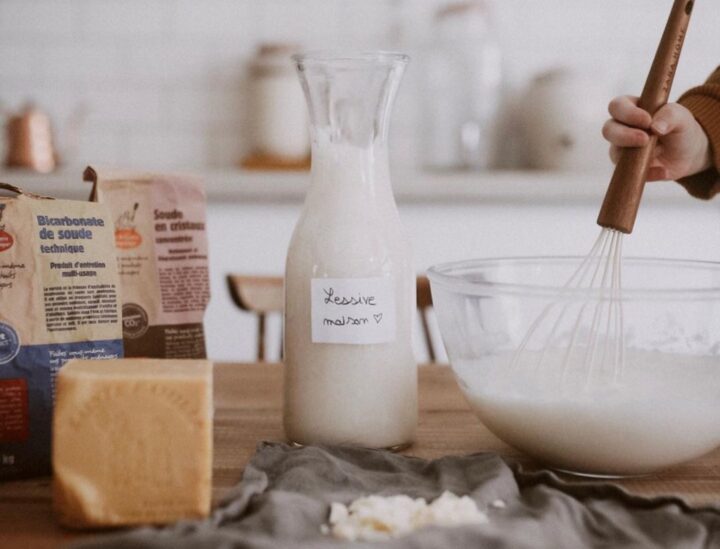What is the origin of your products?
Our Marseille soaps are made in Marseille, France, by the last artisanal soap factories which are recognized for respecting the saponification method specific to this soap.
As for our Aleppo soaps, even if some are or were made in Syria, we import them from a French company located not far from Paris.
Why don’t you have physical shop?
Thanks to our online store, we can reach our customers without geographical restrictions. A brick-and-mortar store has certain advantages but also many major disadvantages, especially when you offer only one or almost only one type of product.
To increase our physical presence, we participate in several markets in Quebec. Our soaps are also available from our retailers.
Is packaging-free cosmetics hygienic?
Absolutely. You can consult the Environment page to find out why most of our Marseille soaps do not have packaging.
It’s also good to know that they’re stored away from dust and remain in their containers, which we keep closed at all times. If that reassures you, do to our products what you would do to an apple: rinse them lightly, even if cleaning a cleaning product seems a little strange.
Aren’t olive oil soaps green?
Originally, yes. However, from the moment it is made, a Marseille soap cube slowly loses its surface color. This is completely normal for traditional soaps since they do not contain any colorants, and this phenomenon is even a guarantee of quality.
Although soaps made with coconut or palm oil suffer the same fate, this effect can be seen much more clearly in an olive oil soap.
Marseille soap is not 100% olive oil?
Marseille soap has not been made exclusively with olive oil for over two hundred years, for both technical and economic reasons.
Olive oil is more difficult to saponify because it produces a much softer soap that is unusable as is. It would therefore be imperative to let it dry for many months, which would lead to high storage costs that would be added to the cost of the expensive raw material, as is the case with Aleppo soap.
Furthermore, other oils such as coconut and palm oil give soaps some interesting properties, including making them hard more quickly and creating lather.
For your information, the quantity of saponified olive oil can represent 40% or more of the total oils in a Marseille soap.
Aren’t your soaps too big?
Conventional cubes may seem too large to be used easily, but they can be cut to the desired size when they’re not too dry. As a side note, Marseille soap was previously sold in blocks of 30 to 50 kg! Washerwomen would then cut directly from the block of soap. Furthermore, the larger the soap, the less expensive it is to buy.
Are your soaps hypoallergenic?
Hypoallergenic: Refers to a substance that causes few allergic reactions.
Traditional Marseille soaps, like Aleppo soaps, are considered hypoallergenic since they contain only the bare minimum necessary to make a soap, thus drastically reducing the possibility of allergies.
On the other hand, scented soaps, whether they are called Marseille soaps or something else, contain many more ingredients.
They are therefore more likely to cause skin reactions in people suffering from an allergy to one component or another; more often perfumes and their molecules.
How are they scented?
Traditional Marseille soap, whether for bathing or cleaning, does not contain any perfume other than its natural scent.
Scented soaps contain fragrances of natural or synthetic origin.
A naturally derived fragrance is an essential oil that is listed under its botanical name in the ingredient list. For example, Rosa Gallica L for rose fragrance.
Synthetic perfumes are used when you want to reproduce a fruity scent or when the production of essential oil is impossible for various reasons, for example with lily of the valley, which is a toxic and deadly plant.
Please note: a naturally scented soap is not necessarily better in terms of safety. A plant, and even more so its essential oil, can be just as toxic or allergenic as a synthetic compound. We will therefore never use the marketing rhetoric of systematically praising the presence of essential oil in a soap.
What you need to remember is that, regardless of the nature of the perfume used, it is often the primary cause of allergy and intolerance when using soap.
Do your soaps contain colorants?
Traditional Marseille soap is not colored. However, scented toilet soaps may or may not contain colorants.
The presence of a colorant is always indicated in the list of ingredients by the letters CI followed by a five-digit number. For example, CI12490 indicates a red colorant.
Are they tested on animals?
No, because the European Union has banned these tests since 2004 on finished cosmetic products and since 2009 on ingredients alone or in combinations.
Please note: three very specific tests are still temporarily authorized but mainly concern industries that produce cosmetics more complex than Marseille soaps (lipstick, anti-wrinkle cream, etc.).

